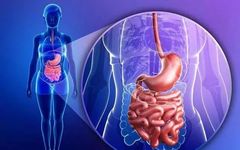Traditional Chinese Medicine (TCM) believes that the spleen and stomach are the “foundation of postnatal life,” and there is a saying that “injury to the spleen and stomach leads to the emergence of a hundred diseases.” The famous physician of the Ming Dynasty, Zhang Jingyue, also proposed the view that “health preservation should prioritize the spleen and stomach,” referring to them as the foundation and axis of the body, highlighting their importance. The spleen is responsible for the transformation and transportation of nutrients from food, distributing fluids, and regulating blood, while the stomach is the largest digestive organ in our body.Once the function of the spleen and stomach is compromised, the body may experience malnutrition and disharmony of qi and blood, leading to poor complexion, weak body, and unhealthy skin.Therefore, managing the spleen and stomach is crucial, and many patients have contacted me multiple times, hoping I would discuss the management of spleen and stomach diseases along with corresponding TCM medicines and foods. Today, I will introduce this topic.
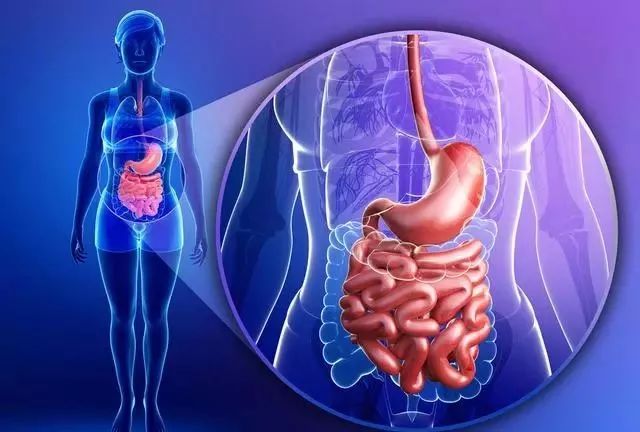
1. The Role of the Spleen and StomachProblems with the spleen and stomach not only affect appetite, sleep, and mood, but over time can also lead to organic diseases.Conversely, when the spleen and stomach function well, they ensure that the body has sufficient qi and blood, allowing all organs to function smoothly.More importantly, good spleen and stomach health can lead to longevity.A study in Israel involving 1,258 elderly patients aged 70-82 found that after excluding factors such as physical activity, demographics, and nutrition, elderly individuals with healthy spleen and stomach and good appetites had a lower risk of death.

2. Serious Issues with Spleen and Stomach DiseasesThe spleen prefers dryness and dislikes dampness;the stomach prefers regularity and dislikes stimulation. However, in the fast-paced modern life filled with stress, drinking alcohol, binge eating, consuming cold and pickled foods, sedentary lifestyles, and anxiety… various unhealthy habits place an even greater burden on the already weak spleen and stomach.TCM believes that the spleen has the characteristics of “earth,” which easily absorbs moisture, making it vulnerable to dampness entering the body, and most modern people experience “spleen dampness” issues.Additionally, data shows that there are approximately 120 million patients with gastrointestinal diseases in China, with over 70% being middle-aged and elderly individuals, and chronic gastritis and peptic ulcers being the most common, with incidence rates of 30% and 10%, respectively.
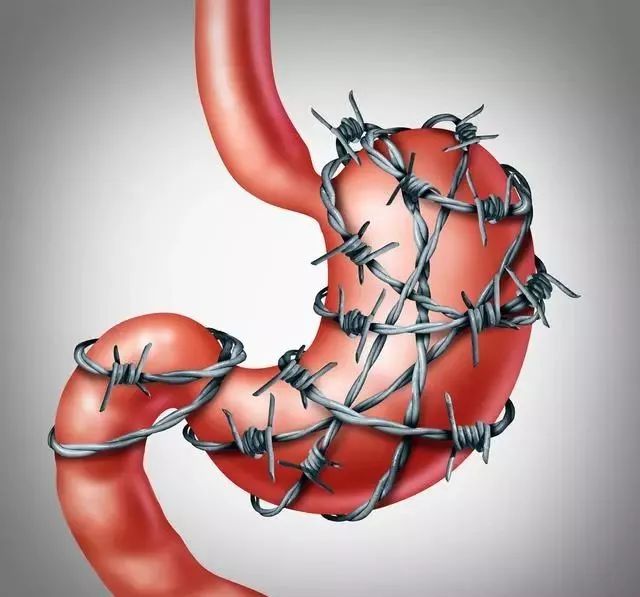
Stomach Pain3. Symptoms of Spleen and Stomach Issues1. Yellow complexion.A dull yellow complexion may indicate spleen deficiency, primarily manifested as poor appetite, abdominal distension after meals, and symptoms of diarrhea or loose stools.If not treated in time, the complexion may gradually turn “withered yellow,” characterized by yellow cheeks and emaciation, due to insufficient qi and fluids from the spleen, which cannot provide adequate nutrition to the body.In contrast to withered yellow is “yellow and swollen,” which refers to a yellow complexion with edema.

2. Dull nose tip.Touching the tip of the nose may reveal a small pit; this area reflects the physiological function and pathological changes of the spleen most clearly.If the nose tip is red, it indicates heat in the spleen and stomach, characterized by a strong appetite but easy hunger after eating, poor digestion and absorption, and a bitter, sticky mouth.3. Lips without color, dry.The “Huangdi Neijing” states, “The lips are the organ of the spleen,” and “the spleen opens to the mouth,” indicating that issues with the spleen and stomach will manifest on the lips.Yang Li states that generally, individuals with good spleen and stomach health have rosy, moderately moist, and smooth lips.Conversely, if a person’s lips are dry, peeling, and colorless, it indicates poor spleen and stomach health.
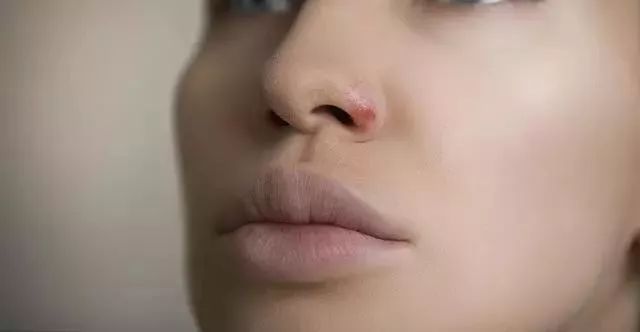
4. Drooling during sleep.The “Huangdi Neijing” also states, “The spleen governs saliva,” which is the external manifestation of the spleen’s fluids and qi.When a person’s spleen qi is sufficient, saliva can be transmitted normally, aiding in swallowing and digestion, and will remain in the mouth without overflowing.Once the spleen qi is weak, the “saliva” becomes uncontrollable, leading to drooling during sleep.If drooling occurs frequently and unconsciously, one can start by tonifying the spleen for adjustment.5. Constipation.Under normal circumstances, the water consumed is transformed by the spleen and stomach into fluids for various organs. If the spleen and stomach’s transformation ability is weakened, it can lead to insufficient motility of the large intestine, resulting in functional constipation.

6. Poor sleep.There is an ancient saying, “If the stomach is not harmonious, one cannot rest peacefully.” Individuals with poor spleen and stomach health will also experience reduced sleep quality, leading to difficulties falling asleep, waking up suddenly, and vivid dreams.

7. Poor mental state.Disruption in the spleen and stomach’s transformation can easily lead to forgetfulness, palpitations, and sluggish reactions.Conversely, when the spleen and stomach function well, they nourish the brain, leading to clarity of mind, abundant energy, and quick thinking.4. Differential Diagnosis and Medication for Spleen and Stomach Diseases1. Spleen and Stomach Yang Deficiency.Overconsumption of cold foods or kidney yang deficiency, leading to insufficient warmth for the earth.Clinical manifestations include abdominal distension, reduced appetite, abdominal fullness relieved by warmth and pressure, clear water regurgitation, thin and watery stools, cold limbs, or heaviness in the body, or generalized edema, and difficulty urinating, or excessive thin and watery vaginal discharge, with a feeling of heaviness in the lower abdomen and soreness in the waist and abdomen.The tongue is pale and swollen, with a white, slippery coating, and the pulse is deep, slow, and weak.Excessive cold and dampness leads to clear water regurgitation, thin stools, and in severe cases, undigested food in stools, difficulty urinating, and edema.Women may experience thin and watery vaginal discharge and heaviness in the lower abdomen, indicating cold dampness descending.Shen Ling Bai Zhu San (Shen Ling Bai Zhu Powder) and Ren Shen Jian Pi Wan (Ginseng Spleen Strengthening Pill) are used to treat spleen and stomach weakness leading to undigested food, fullness, nausea, vomiting, abdominal pain, loose stools, lack of appetite, and fatigue.Bu Zhong Yi Qi Wan (Tonify the Middle and Augment the Qi Pill) is used for spleen and stomach weakness, sinking of the middle qi, fatigue, reduced appetite, abdominal distension, chronic diarrhea, prolapse of the rectum, and uterine prolapse.2. Spleen and Stomach Qi Deficiency.Fatigue, general weakness, lack of appetite, or refusal to eat, accompanied by weight loss, pale complexion, thin and watery stools or stools with remnants of undigested food, pale tongue, white coating, and weak pulse.Can use Xiang Sha Liu Jun Zi Tang (Aromatic Sand Six Gentlemen Decoction) and Shen Ling Bai Zhu San.3. Dampness Obstructing Spleen Yang.Spleen and Stomach Damp-Heat syndrome often presents with abdominal distension, fullness, nausea, dry mouth without desire to drink or drinking little, sticky mouth, sticky or constipated stools, pale red or red tongue, yellow greasy coating, burning pain in the abdomen, and acid regurgitation.Dry mouth and bitter taste, thirst without desire to drink, sweet and sticky mouth, sour regurgitation after eating sweet foods, nausea, heaviness in the body, burning pain in the abdomen, and acid regurgitation.Can use Yin Chen Wu Ling San (Yin Chen Wu Ling Powder) and Ge Gen Qin Lian Tang (Ge Gen Qin Lian Decoction).4. Yin Deficiency with Excess Heat.Afternoon tidal fever or night fever, fever with aversion to clothing, heat in the palms and soles, or bone steaming tidal fever, irritability, insomnia, vivid dreams, flushed cheeks, night sweats, dry mouth and throat, dry and red tongue with cracks, little or no coating, and thin rapid pulse.May also have recurrent oral ulcers, pain, dizziness, soreness in the waist and fatigue.Can use Liu Wei Di Huang Wan (Six Flavor Rehmannia Pill), Zhi Bai Di Huang Wan (Anemarrhena and Phellodendron Pill), Yu Nu Jian (Jade Woman Decoction), Gui Qi Shen Kou Fu Ye (Gui Qi Shen Oral Liquid), and Yu Pan Xiao Ke Pian (Jade Plate Diabetes Tablet).5. TCM Medicines for Strengthening the Spleen and Eliminating Dampness
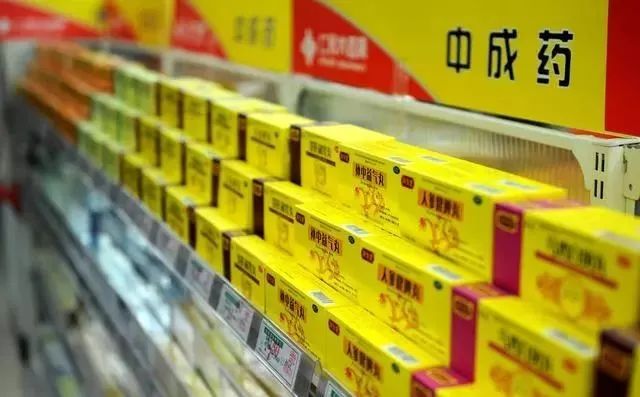
Medicinal Ingredients1. TCM medicines for strengthening the spleen and eliminating dampness:Jian Pi Wan (Spleen Strengthening Pill)Jian Pi Wan is a well-known digestive and food stagnation remedy, named for its ability to strengthen the spleen and aid digestion.It is derived from the formula “Jian Pi Wan” in the fifth volume of Wang Kentang’s “Zheng Zhi Zhun Sheng” and is a sister formula to Bao He Wan (Preserve Harmony Pill), commonly used for children’s indigestion, and also used for chronic gastritis, gastric neurosis, gastric and duodenal ulcers, and chronic enteritis.[Ingredients] Dang Shen (Codonopsis), Bai Zhu (White Atractylodes, fried), Chen Pi (Tangerine Peel), Zhi Shi (Bitter Orange, fried), Shan Zha (Hawthorn, fried), Mai Ya (Barley Sprout, fried).[Formula Analysis] The formula uses Dang Shen and Bai Zhu to tonify the spleen and stomach to aid in transformation; Shan Zha and Mai Ya to aid digestion and resolve food stagnation; Chen Pi and Zhi Shi to regulate qi and harmonize the stomach.All the herbs work together to tonify the spleen and benefit the stomach, regulate qi, and resolve stagnation, making it particularly suitable for spleen deficiency with food accumulation.[Functions and Indications] Strengthens the spleen and opens the appetite.Used for spleen and stomach weakness, abdominal distension, and reduced appetite with loose stools.2. TCM medicines for strengthening the spleen and eliminating dampness:Mu Xiang Shun Qi Wan (Aromatic Wood Qi Regulating Pill)[Ingredients]: Mu Xiang (Aromatic Wood), Zhi Qiao (Bitter Orange, processed), Chen Pi (Tangerine Peel), Xiang Fu (Cyperus, vinegar processed), Bing Lang (Areca Nut), Cang Zhu (Atractylodes, fried), Sha Ren (Amomum), Hou Po (Magnolia Bark, processed), Gan Cao (Licorice), Qing Pi (Green Tangerine Peel, fried).[Functions and Indications] Regulates qi and transforms dampness, strengthens the spleen and harmonizes the stomach.Indicated for chest fullness, abdominal distension and pain, vomiting, nausea, and poor appetite.3. TCM medicines for strengthening the spleen and eliminating dampness:Fu Zi Li Zhong Wan (Aconite Regulating the Middle Pill)[Ingredients]: Fu Zi (Aconite, processed), Dang Shen (Codonopsis), Bai Zhu (White Atractylodes, fried), Gan Jiang (Dried Ginger), Gan Cao (Licorice).[Functions and Indications] Warms the middle and strengthens the spleen.Indicated for spleen and stomach cold deficiency, abdominal pain due to cold, vomiting, diarrhea, and cold limbs.4. TCM medicines for strengthening the spleen and eliminating dampness:Shen Ling Bai Zhu Wan (Ginseng, Poria, and Atractylodes Pill)This formula is a representative formula for treating spleen deficiency diarrhea.Indicated for increased frequency of stools after consuming slightly greasy foods or overeating, accompanied by undigested food, alternating diarrhea and loose stools, prolonged and recurrent symptoms, reduced appetite, abdominal discomfort after eating, pale yellow complexion, fatigue, pale tongue with white coating, and thin weak pulse.[Ingredients] Ren Shen (Ginseng), Bai Zhu (White Atractylodes), Fu Ling (Poria), Shan Yao (Chinese Yam), Lian Zi Rou (Lotus Seed), Bai Bian Dou (Hyacinth Bean), Yi Yi Ren (Job’s Tears), Sha Ren (Amomum), Jie Geng (Platycodon), Gan Cao (Licorice), Da Zao (Jujube).[Functions and Indications] Tonifies the spleen and stomach, benefits lung qi.Indicated for spleen and stomach weakness, reduced appetite, loose stools, shortness of breath, cough, and fatigue.Benefits qi, strengthens the spleen, and drains dampness to stop diarrhea.5. TCM medicines for strengthening the spleen and eliminating dampness:Gui Pi Wan (Restore the Spleen Pill)[Ingredients] Dang Shen (Codonopsis), Bai Zhu (White Atractylodes, fried), Zhi Huang Qi (Astragalus, roasted), Zhi Gan Cao (Licorice, roasted), Fu Ling (Poria), Yuan Zhi (Polygala, processed), Suan Zao Ren (Sour Jujube Seed, fried), Long Yan Rou (Longan Flesh), Dang Gui (Angelica), Mu Xiang (Aromatic Wood), Da Zao (Jujube, pitted).[Functions and Indications] Benefits qi, strengthens the spleen, nourishes blood, and calms the spirit.Indicated for heart and spleen deficiency, shortness of breath, palpitations, insomnia with vivid dreams, dizziness, fatigue, poor appetite, and abnormal uterine bleeding.6. Commonly Used TCM Medicines for Digestion
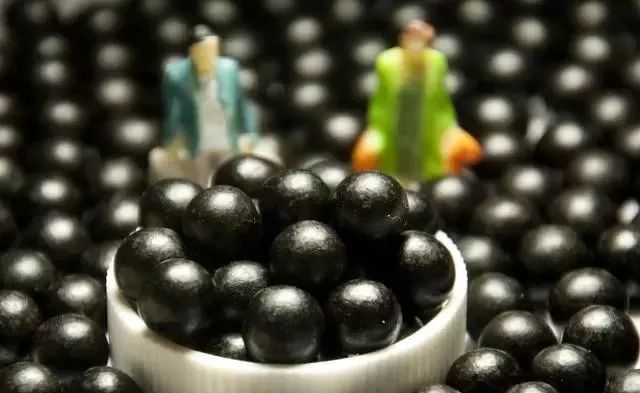
1. Wei Su GranulesComposition:Zi Su Geng (Perilla Stem), Xiang Fu (Cyperus), Chen Pi (Tangerine Peel), Xiang Yuan (Citron), Fo Shou (Buddha’s Hand), Zhi Qiao (Bitter Orange), Bing Lang (Areca Nut), Ji Nei Jin (Processed Chicken Inner Skin).Excipients include dextrin, stevia glycosides, and sodium carboxymethyl starch.Effects:Regulates qi, relieves distension, harmonizes the stomach, and alleviates pain.Indications:Indicated for qi stagnation type stomach pain, characterized by distension and pain in the stomach area, radiating to both sides, relieved by belching or passing gas, worsened by emotional stress, chest tightness, reduced appetite, and constipation, as well as chronic gastritis with the above symptoms.Formula Analysis:Zi Su Geng disperses and relieves chest tightness; Chen Pi regulates qi, strengthens the spleen, dries dampness, and transforms phlegm; Xiang Fu regulates the liver, moves qi, and alleviates pain; Fo Shou and Xiang Yuan regulate the liver, relieve depression, and harmonize the stomach.2. Pu Yuan He Wei CapsulesComposition:Yan Hu Suo (Corydalis), Xiang Fu (Cyperus), Ru Xiang (Frankincense, processed), Pu Gong Ying (Dandelion), Bai Fan (Alum, calcined), Gan Cao (Licorice).Effects:Regulates the liver and harmonizes the stomach, moves qi, and alleviates pain.Indications:Indicated for chronic gastritis, atrophic gastritis, gastric and duodenal ulcers, reflux esophagitis, etc., effectively relieving symptoms of stomach pain, acidity, bloating, heartburn, nausea, belching, acid reflux, loss of appetite, functional dyspepsia, black stools, and diarrhea.Formula Analysis:Yan Hu Suo enters the liver, spleen, and stomach channels, moves qi, and alleviates pain, serving as the monarch herb.Xiang Fu regulates the liver, relieves depression, harmonizes the stomach, and alleviates pain; Ru Xiang moves qi and alleviates pain.Pu Gong Ying clears heat and detoxifies; Bai Fan detoxifies; Gan Cao moderates acute pain and harmonizes the herbs.3. Kuai Wei TabletsComposition:Hai Piao Xiao (Cuttlefish Bone), Ku Fan (Alum), Vinegar Yan Hu Suo, Bai Ji (Bletilla), Gan Cao (Licorice).Effects:Neutralizes stomach acid, harmonizes the stomach, and alleviates pain.Indications:Indicated for stomach pain, vomiting, acid reflux, and reduced appetite due to disharmony between the liver and stomach; superficial gastritis, gastric and duodenal ulcers, and gastric antrum inflammation with the above symptoms.Formula Analysis:Bai Ji and Gan Cao inhibit gastric acid secretion, promote healing of lesions, stop bleeding, and reduce gastric protease activity; Yan Hu Suo increases pain threshold and relieves pain; Hai Piao Xiao neutralizes acid and alleviates pain; Ku Fan stops bleeding.All herbs work together to achieve the effect of neutralizing acid and relieving pain.4. Dan Ning TabletsComposition:Da Huang (Rhubarb), Hu Zhang (Japanese Knotweed), Qing Pi (Green Tangerine Peel), Bai Mao Gen (Imperata), Chen Pi (Tangerine Peel), Yu Jin (Curcuma), Shan Zha (Hawthorn).Effects:Regulates the liver, benefits the gallbladder, clears heat, and promotes bowel movements.Indications:Indicated for right upper abdominal pain, bloating, poor appetite, belching, and constipation due to liver qi stagnation and unresolved damp-heat; chronic cholecystitis with the above symptoms.Formula Analysis:Da Huang clears heat and purges, guides stagnation and relieves distension; Hu Zhang clears heat, detoxifies, and removes spots; Bai Mao Gen clears heat and cools the blood; Chen Pi and Qing Pi strengthen the spleen and harmonize the stomach; Yu Jin regulates the liver and benefits the gallbladder; Shan Zha resolves food accumulation and promotes blood circulation.All herbs work together to achieve the effects of regulating the liver, benefiting the gallbladder, clearing heat, and promoting bowel movements.5. Gu Chang Zhi Xie Wan (Solidify the Intestines and Stop Diarrhea Pill)Composition:Wu Mei (Mume), Huang Lian (Coptis), Gan Jiang (Dried Ginger), Ying Su Ke (Poppy Seed Shell), Yan Hu Suo (Corydalis).Effects:Harmonizes the liver and spleen, astringes the intestines, and alleviates pain.Indications:Indicated for liver-spleen disharmony, diarrhea, dysentery, and abdominal pain, as well as chronic non-specific ulcerative colitis with the above symptoms.Formula Analysis:Wu Mei is sour and astringent, solidifying the intestines and stopping diarrhea, serving as the monarch herb.Huang Lian clears heat and dries dampness, solidifying the intestines and stopping diarrhea; Ying Su Ke astringes the intestines and stops diarrhea.These two herbs work together to clear and astringe, enhancing the monarch herb’s ability to stop diarrhea, serving as minister herbs.Gan Jiang warms the middle, disperses cold, and harmonizes the stomach, preventing Huang Lian’s bitter cold from harming the middle; Mu Xiang moves qi and alleviates pain; Yan Hu Suo invigorates blood and relieves pain.These three herbs work together to warm and disperse, harmonizing qi and blood, serving as assistant herbs.The entire formula combines sour, bitter, and pungent flavors, with sourness solidifying and stopping diarrhea, bitterness drying dampness and stopping diarrhea, and pungency moving qi and alleviating pain, harmonizing qi and blood, achieving the effects of harmonizing the liver and spleen, solidifying the intestines, and alleviating pain.6. Jian Wei Xiao Shi Oral LiquidComposition:Tai Zi Shen (Pseudostellaria), Chen Pi (Tangerine Peel), Shan Yao (Chinese Yam), Mai Ya (Barley Sprout, fried), Shan Zha (Hawthorn).Effects:Strengthens the stomach and aids digestion.Indications:Indicated for spleen and stomach weakness, and indigestion.Formula Analysis:Tai Zi Shen benefits qi and strengthens the spleen, serving as the main herb to protect stomach qi.Chen Pi regulates qi and harmonizes the stomach; Shan Yao strengthens the spleen and harmonizes the stomach; Shan Zha resolves all food stagnation, especially for greasy meat accumulation; Mai Ya resolves rice and flour food accumulation.All herbs work together to achieve the effect of strengthening the spleen and aiding digestion.7. Si Mo DecoctionComposition:Ren Shen (Ginseng), Bing Lang (Areca Nut), Chen Xiang (Aquilaria), Tian Tai Wu Yao (Lindera).Effects:Moves qi, descends counterflow, and relieves chest tightness.Indications:Indicated for liver qi stagnation syndrome.Symptoms include chest tightness, shortness of breath, fullness in the heart area, lack of appetite, and wiry pulse.Formula Analysis:This formula treats conditions caused by emotional distress leading to liver qi stagnation.When liver qi stagnates, it obstructs the chest, causing tightness; if it ascends to the lungs, it causes shortness of breath; if it obstructs the stomach, it causes fullness and lack of appetite; a wiry pulse indicates liver stagnation.The symptoms are located in the lungs and stomach, but the root cause is in the liver.The treatment should focus on moving qi and descending counterflow, relieving chest tightness.The formula uses Wu Yao to move qi and relieve liver stagnation as the monarch herb.Chen Xiang descends qi and relieves counterflow to alleviate shortness of breath; Bing Lang moves qi and guides stagnation to relieve fullness in the heart area, serving as minister herbs.Ren Shen benefits qi and supports the righteous qi to prevent the three herbs from depleting the righteous qi, serving as assistant herbs.All herbs work together to achieve the effects of moving qi, descending counterflow, and relieving chest tightness.8. Jia Wei Xiao Yao Wan (Modified Free and Easy Wanderer Pill)Composition:Chai Hu (Bupleurum), Dang Gui (Angelica), Bai Shao (White Peony), Bai Zhu (White Atractylodes, wheat-fried), Fu Ling (Poria), Gan Cao (Licorice), Mu Dan Pi (Moutan Root), Zhi Zi (Gardenia, ginger-roasted), Bo He (Mint).Effects:Regulates the liver, clears heat, strengthens the spleen, and nourishes blood.Indications:Indicated for blood stasis and deficiency, liver-spleen disharmony, fullness and pain in the sides, dizziness, fatigue, reduced appetite, irregular menstruation, and abdominal pain.Formula Analysis:Chai Hu regulates the liver and relieves stagnation; Dang Gui and Bai Shao nourish blood and invigorate blood flow to nourish the liver; Zhi Zi clears heat from the upper, middle, and lower jiao; Mu Dan Pi cools the blood and disperses stasis, achieving the effect of clearing heat and relieving stagnation.Assisted by Bai Zhu, Fu Ling, and Gan Cao to strengthen the spleen and eliminate dampness; Bo He, with its cooling and dispersing properties, assists Chai Hu in regulating the liver and clearing heat, also guiding the herbs into the liver channel.All herbs work together to achieve the effects of regulating the liver, clearing heat, strengthening the spleen, and nourishing blood.9. Chai Hu Shu Gan San (Chai Hu Liver Regulating Powder)Composition:Chen Pi (Tangerine Peel), Chai Hu (Bupleurum), Chuan Xiong (Ligusticum), Xiang Fu (Cyperus), Zhi Qiao (Bitter Orange), Shao Yao (Peony), Gan Cao (Licorice).Effects:Regulates the liver, moves qi, invigorates blood, and alleviates pain.Indications:Indicated for liver qi stagnation syndrome.Symptoms include pain in the sides, chest tightness, emotional depression, irritability, belching, and abdominal distension.Formula Analysis:The liver governs the smooth flow of qi and prefers to be unobstructed; its meridians run through the sides and lower abdomen.If emotions are not expressed, the liver qi becomes stagnant, leading to pain in the sides, chest tightness, and abdominal distension; if the liver fails to regulate, it can lead to emotional depression and irritability; a wiry pulse indicates liver stagnation.Following the principle of “wood stagnation leads to flow,” the treatment should focus on regulating the liver and moving qi.The formula uses Chai Hu to effectively regulate the liver and relieve stagnation as the monarch herb.Xiang Fu regulates qi and relieves pain; Chuan Xiong invigorates blood and moves qi to alleviate pain, serving as minister herbs.Chen Pi and Zhi Qiao regulate qi and relieve stagnation; Shao Yao and Gan Cao nourish blood and soften the liver, alleviating pain, serving as assistant herbs.All herbs work together to achieve the effects of regulating the liver, moving qi, invigorating blood, and alleviating pain.10. Zi Shui Qing Gan Yin (Nourish Water and Clear Liver Drink)Composition:Shu Di Huang (Rehmannia), Dang Gui Shen (Angelica), Bai Shao (White Peony), Jujube Seed, Shan Yao (Chinese Yam), Fu Ling (Poria), Bai Zhu (White Atractylodes), Chai Hu (Bupleurum), Zhi Zi (Gardenia), Dan Pi (Moutan Root), Ze Xie (Alisma).Effects:Nourishes yin, nourishes blood, clears heat, and smooths the liver.Indications:Indicated for yin deficiency with liver stagnation, fullness and pain in the sides, stomach pain, dry throat, red tongue with little coating, and weak or wiry pulse.Formula Analysis:The theory of Liu Wei Di Huang Tang nourishes yin and benefits the kidneys, combined with the clearing and smoothing effects of Dan Zhi Xiao Yao San, this formula is excellent for nourishing yin and relieving stagnation. Shu Di Huang nourishes the kidneys and fills essence as the monarch herb, assisted by Shan Yao to nourish the spleen and stabilize essence, and Fu Ling to promote water metabolism and support the spleen.Chai Hu and Zhi Zi smooth the liver and assist the three jiao in clearing heat; Ze Xie clears kidney fire and prevents Shu Di Huang from being too cloying.Modern studies show that Shan Yao and Fu Ling have diuretic and antihypertensive effects, while Ze Xie not only has diuretic and antihypertensive effects but also slows atherosclerosis, lowers blood sugar, and lowers blood lipids; Dang Gui has antihypertensive effects, reduces platelet aggregation, and prevents thrombosis.11. Yi Wei Tang (Nourish the Stomach Decoction)Composition:Sha Shen (Adenophora), Mai Dong (Ophiopogon), Rock Sugar, Xian Sheng Di (Fresh Rehmannia), Yu Zhu (Polygonatum).Effects:Nourishes yin and benefits the stomach.Indications:Indicated for Yangming warm disease and stomach yin damage syndrome.Symptoms include loss of appetite, dry mouth and throat, red tongue with little coating, and thin rapid pulse.Formula Analysis:Warm diseases can easily lead to heat damaging fluids, resulting in heat accumulation in the bowels. After using purgatives, although the heat is resolved, the stomach yin may be severely damaged, leading to loss of appetite, dry mouth, and throat.The stomach is the sea of water and grain, and all meridians derive qi from the stomach; restoring stomach yin allows qi to descend and enables eating.The treatment should focus on sweet and cool methods to generate fluids, nourish yin, and benefit the stomach.This formula emphasizes Sheng Di and Mai Dong as the monarch herbs, which are sweet and cold, excellent for nourishing yin, clearing heat, generating fluids, and moistening dryness, making them the best for nourishing the stomach.Bei Sha Shen and Yu Zhu serve as minister herbs, nourishing yin and generating fluids, enhancing the effects of Sheng Di and Mai Dong in nourishing the stomach and yin.Rock Sugar serves as the envoy, moistening and nourishing the lungs and stomach, harmonizing all herbs.7. Recommended Four Massage Techniques for Spleen and Stomach Regulation1. Spinal Pinching.The spinal pinching technique is usually used for children but is equally effective for adults, suitable for patients with indigestion, halitosis, stomach distension, stomach pain, diarrhea, fatigue, and weakness.Pinch 1-2 times daily, and persistence for one week can yield results.Method: First, gently massage the back several times to relax the muscles, then use the thumb, index finger, middle finger, and ring finger to simultaneously pinch the skin along the spine from bottom to top, alternating hands to twist forward.Pinch three times and lift the skin; this is called the “pinch three, lift one method.”The amount of skin pinched and the force used should be appropriate, avoiding twisting; it should proceed in a straight line without deviation.2. Navel Rubbing.One palm or the palm root is placed on the navel, while the other hand presses the back of the hand, rotating clockwise for about 5 minutes, 1-2 times daily.This method can warm yang, disperse cold, tonify qi and blood, strengthen the spleen and stomach, and aid digestion, commonly used for indigestion, stomach cold, abdominal distension, abdominal pain, diarrhea, and constipation.3. Rubbing the Lower Abdomen.Place both hands on either side of the navel, rubbing up and down until warmth is felt.This method is suitable for patients with stomach distension and abdominal pain, performed 2-5 times daily.Two inches away from the navel is the Tian Shu point; this method can stimulate this point, treating acute and chronic gastroenteritis and digestive dysfunction leading to food accumulation, vomiting, diarrhea, and constipation.4. Pressing and Rubbing Zu San Li.Zu San Li is a key health point located below the knee.Press and rub 50-100 times daily to strengthen the spleen and stomach, regulate the middle, move qi, and open channels, suitable for various types of spleen and stomach disorders.

Zu San Li Point5. Moxibustion for Tonifying Qi, Strengthening the Spleen, and Nourishing the Kidneys.Individuals who often wheeze may have kidney yang deficiency, leading to difficulty in inhaling, resulting in symptoms of wheezing and shortness of breath.To improve wheezing during movement, methods such as moxibustion and dietary therapy can be employed to enhance physical capacity.8. Foods Beneficial for the Spleen and Stomach1. Shiitake Mushrooms.Sweet in flavor and neutral in nature.Effects:Benefits stomach qi and helps with rashes.Suitable for spleen and stomach weakness, lack of appetite, and fatigue.Considered a triggering food, avoid for measles, skin diseases, and allergic conditions.
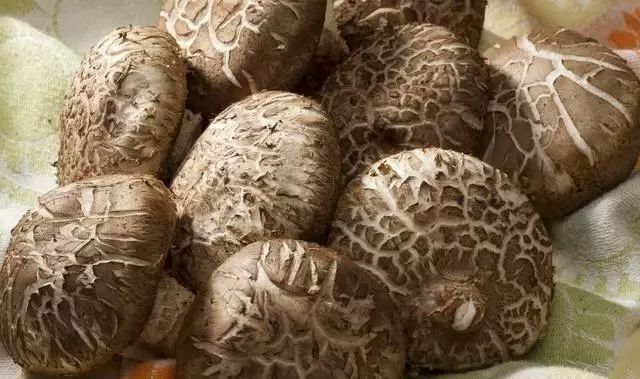
Wooden Surface Shiitake Mushrooms2. Sweet Potatoes.Sweet in flavor and neutral in nature, entering the spleen and stomach channels.Effects:Tonifies the spleen and stomach, boosts energy, and relaxes the intestines and stomach.Suitable for spleen and stomach weakness, thinness, fatigue, and reduced appetite.Excessive consumption may lead to acid reflux, heartburn, and gastrointestinal bloating.3. Chestnuts.Sweet in flavor and warm in nature, entering the spleen, stomach, and kidney channels.Effects:Tonifies the spleen, strengthens the stomach, nourishes the kidneys, and stops bleeding.Suitable for spleen deficiency, reduced appetite, and diarrhea.Avoid for qi stagnation and abdominal bloating.
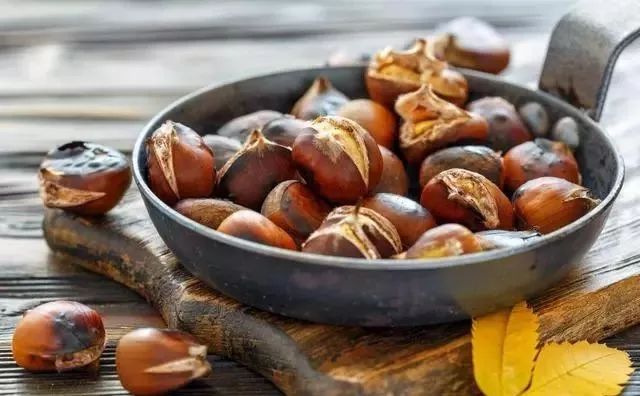
Close-up of Roasted Chestnuts4. Chinese Yam.Sweet in flavor and neutral in nature, entering the spleen, lung, and kidney channels.Effects:Tonifies qi, strengthens the spleen, nourishes yin, and benefits the lungs, and stabilizes essence.Suitable for spleen qi deficiency, reduced appetite, and chronic diarrhea.Avoid for excessive dampness and qi stagnation with bloating.5. Hyacinth Beans.Sweet in flavor and slightly warm in nature, entering the spleen and stomach channels.Effects:Strengthens the spleen, transforms dampness, and clears heat.Suitable for spleen deficiency with excessive dampness, reduced appetite, and summer heat-induced vomiting and diarrhea.Avoid for qi stagnation and abdominal bloating.6. Red Dates.Sweet in flavor and warm in nature, entering the spleen and stomach channels.Effects:Tonifies the spleen and stomach, nourishes blood, and calms the spirit.Suitable for spleen and stomach weakness, reduced appetite, and fatigue.Avoid for qi stagnation, damp-heat, and constipation.7. Honey.Sweet in flavor and neutral in nature, entering the spleen, lung, and large intestine channels.Effects:Tonifies the spleen, alleviates urgency, moistens the lungs, stops cough, and promotes bowel movements.Suitable for spleen and stomach weakness, stomach pain, fluid deficiency, and constipation; recently used for peptic ulcers.Avoid for dampness, damp-heat, stomach bloating, vomiting, and loose stools; not suitable to eat with scallions or lettuce.8. Cowpeas.Sweet in flavor and neutral in nature, entering the spleen and kidney channels.Effects:Strengthens the spleen and nourishes the kidneys.Suitable for spleen and stomach weakness, diarrhea, and vomiting.Avoid for qi stagnation and constipation.9. Scientific Exercise for Spleen and Stomach IssuesThe spleen governs the four limbs, and appropriate physical exercise is beneficial for the spleen and stomach.From the perspective of TCM, the meridian system distributes throughout the four limbs, so appropriate physical exercise can promote the flow of qi, positively affecting the spleen and stomach, enhancing their functions.Generally, individuals with strong spleen and stomach function have well-developed muscles in their limbs, and for women, those with healthy spleen and stomach often have fuller breasts, as the stomach meridian runs through the nipples; strong spleen and stomach function and abundant qi in the stomach meridian play an important role in breast development and fullness.If your spleen and stomach function poorly, consider exercising, especially the legs, which can provide good stimulation to the spleen meridian in the calves.Research shows that moving the toes can nourish the spleen and stomach.It is best to choose gentle, low-intensity, small amounts of sustained exercise, where the body sweats slightly, and the muscles are relaxed, without feeling overly fatigued.High-intensity exercises that lead to excessive sweating are not suitable, as such exercise depletes qi and damages fluids, worsening symptoms of shortness of breath and fatigue, and lowering our immune function.Past Highlights::
This article thoroughly explains the knowledge of tonifying the spleen; be sure to save it!
Golden Edge Rose Tea, a must-read for female friends!
What you are losing is not hair, but qi and blood.
Ginseng has contraindications; 8 types of people should use it with caution!!!
Nourishing yin and tonifying the kidneys with Huang Jing Five Treasure Tea.
The long-term effects of consuming wild Ganoderma.
Skin diseases are actually closely related to the internal organs.
Taking San Qi for 100 days can repair the internal organs, benefiting you for a lifetime!
How to use moxibustion for dysmenorrhea?

